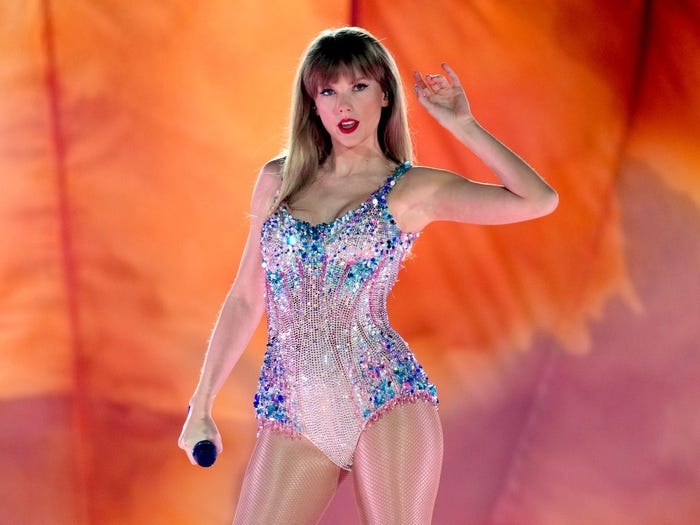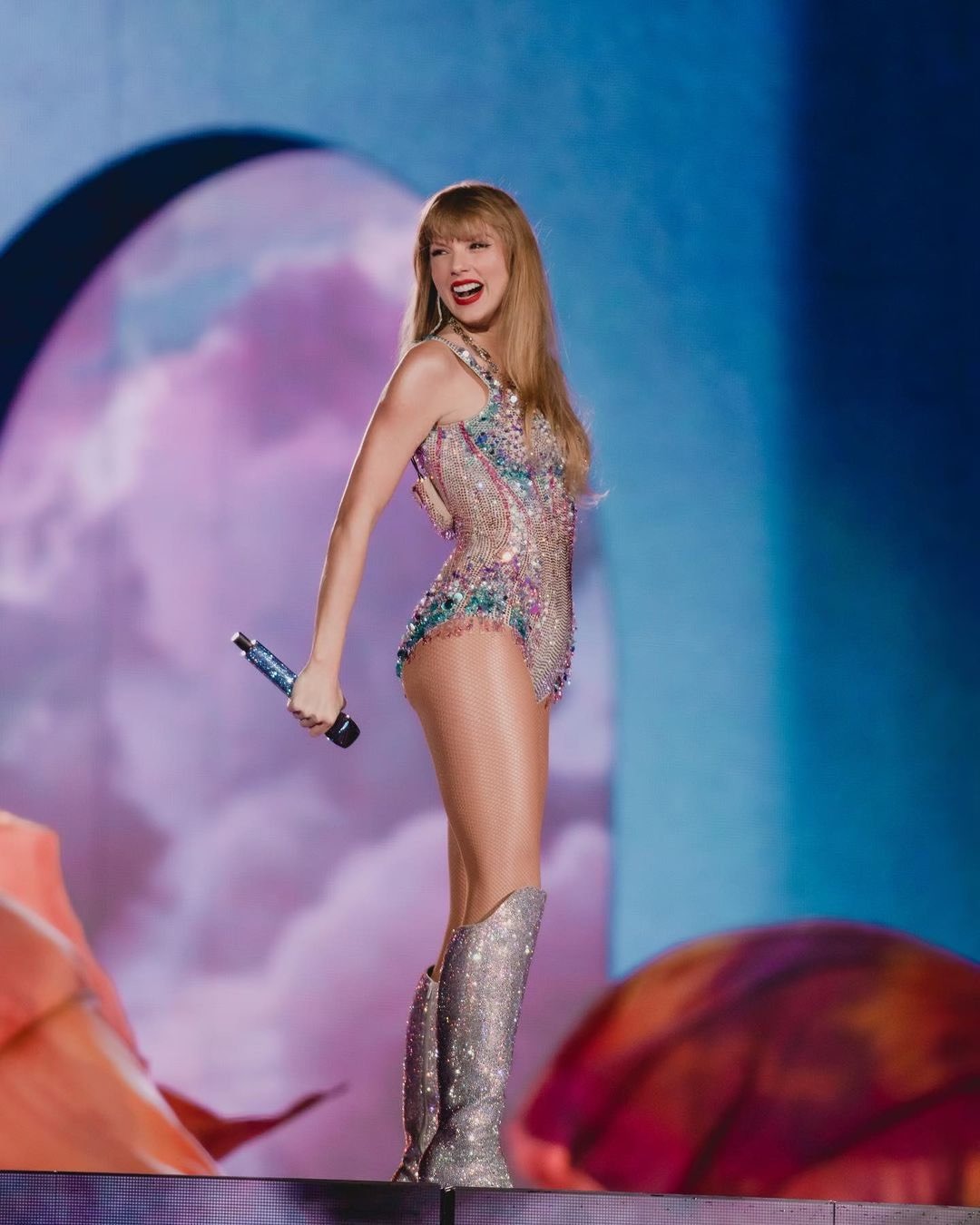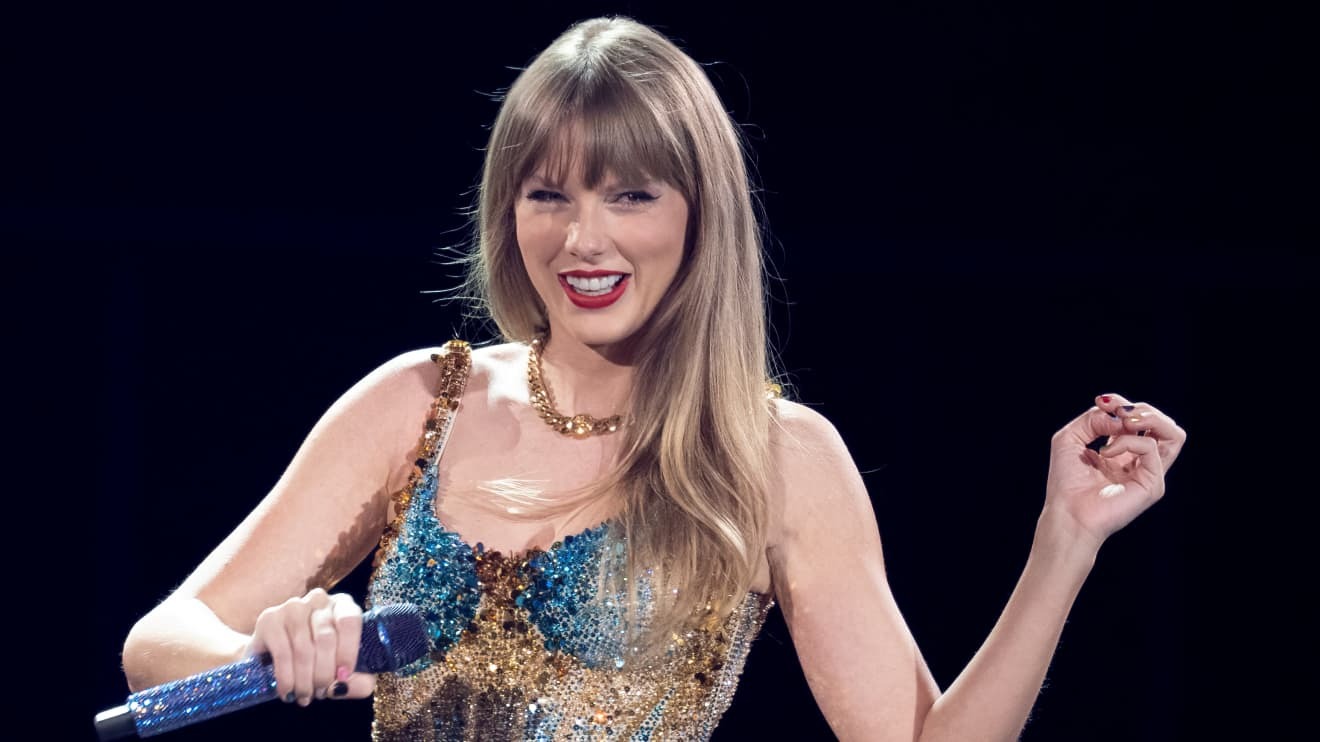The core values that the singer and her fans stand for are none other than those of the Declaration of Independence: life, liberty and the pursuit of happiness

In one of her biggest hits, Anti-Hero (2022), Taylor Swift presents herself to the public as an unsolvable problem… “a monster on the hill.” Indeed, the 34-year-old American’s career and influence have transcended all known categories to date. There’s no sales record that the self-made billionaire hasn’t broken and no music award that she hasn’t won several times. As of the summer of 2024, Swift is more than just a genius artist: she’s a planetary phenomenon, a cultural movement in her own right, with hundreds of millions of fans around the world.

No less important is that, over time, Swift has acquired a political aura and influence that could decide the American presidential elections this fall. Like no other contemporary artist, she knows how to transcend the divisions within her country’s society and unite individuals on a higher level. It can be said that her performances and actions have truly utopian potential.
The core values that Swift and her fans, known as “Swifties,” uphold are none other than those of the American Declaration of Independence: “Life, liberty and the pursuit of happiness.” In the multi-branched universe of her songs, there reigns a desire for autonomy, self-realization, and everyday goodness. This joy in reflection and humorous self-deprecation embody the best that a Westernized global cultural industry can currently offer.

You don’t have to be a convert to be moved by the absolutely positive and freedom-affirming energy that Swift transmits through stadiums and communities, via songs such as Love Story (2008), All Too Well (2012) and Karma (2022). The foundation of the lyrical self of these astute and keenly observant lyrics is an unconditional “yes” to life, to its beauties… and also to its inconsistencies. Instead of passively hoping for the best, she sets out on an emancipated search for enriching experiences. Instead of merely blaming others, she reflects on the hastiness of her own expectations. Instead of confining herself to the role of a whining victim, she productively opens herself to her own desires and vulnerabilities.
It’s true that the ticket prices to see her in concert are prohibitive and that the image campaign is perfectly orchestrated. Any possible gap between what she is and how she appears in public is quickly covered up. Yet Swift manages to shake off any skepticism about her authenticity and unmask it for what it really is: hostility to the good life itself, fueled by a permanently depressed hatred of anyone that has any success and seeks a sense of total freedom. In the words of one of her songs: And the haters gonna hate, hate, hate, hate, hate / Baby, I’m just gonna shake, shake, shake, shake, shake / I shake it off, I shake it off.

Yes, she writes her own lyrics. Yes, she composes her own songs. And, yes, she gives a series of three-and-a-half-hour concerts with almost superhuman perfection.
All of this would be astonishing in and of itself. Still, on top of her talent and work ethic, there’s also the enormous political potential of the phenomenon. Born in 1989, Swift is the daughter of a financial advisor and, as such, is known to be rooted in the conservative values of white America. To further her career — whose ambition was as obvious as her talent — the family moved to Nashville, the city of music, where Swift landed her first record deal at the age of 15. At first, she successfully played the role of the savvy country girl in the Southern style. She acted in the imaginary universe of the high school sweetheart and pickup truck of the “average American,” deeply rooted in the heartland.
Later on, as an adult, she reached global stardom and gained a permanently fascinated public that witnessed her multiple musical and stylistic self-transformations. Still, despite this, she never lost touch with her original environment. Not even when, after the election of Donald Trump in 2016, she adopted a clearly progressive political position and defended LGBTQI+ rights in Tennessee.

With a witty, disarming attitude, a credible patriotism, a call to openly search for the self of every person and a transparent recognition of American founding values, Swift embodies a way out of the current political gridlock. There’s a possible America beyond the spiteful finger-pointing and paranoid surveillance of the enemy, the web-based conspiracy theories and the condescending metropolitan gaze at the losers of the rural and rustbelt states. It’s lived and practiced every day in small towns and Swift embodies it in the best imaginable way. The latent polyphony of the country is reflected in the artist’s diversity of styles, without ever falling into elitist avant-garde.
America — at its best — remains the place in the world in which one can fully live out this way of seeing things. That is, as long as it’s not held hostage by a dictatorship of toxic masculinity fueled by blind class fear of people who transcend their own existential horizon.
For the moment, Swift — a magnet for young voters — hasn’t yet made public her preference for this year’s presidential election. But when it came to light at the end of 2023 that the artist, who is currently based mostly in New York City, had begun a relationship with NFL star Travis Kelce, Trump’s election campaign definitively entered a code red. Forming a duo with Kelce — a lumberjack-type man, the prototypical image of the conservatives’ favourite sport par excellence, as well as a superstar of its most retrograde franchise, the Kansas City Chiefs — Swift is capable of giving power a few jolts that could, over time, far exceed mere campaign support. At the height of her fame, she could even be on her way to becoming president of the land of freedom. What Ronald Reagan achieved in his day as a middling film star can certainly be expected from the biggest pop star of our time. Let no one doubt her ambition, her skills, her ability to impose herself, and her versatility.
Instead of appearing to others as “a monster on the hill” because of her giant status, Swift could, in the future, be elevated to the status of a political solution to seemingly unsolvable problems. Would she set her sights on the Capitol, or the White House? In the United States — land of the Swifties — that’s an American dream that would be worth trying.